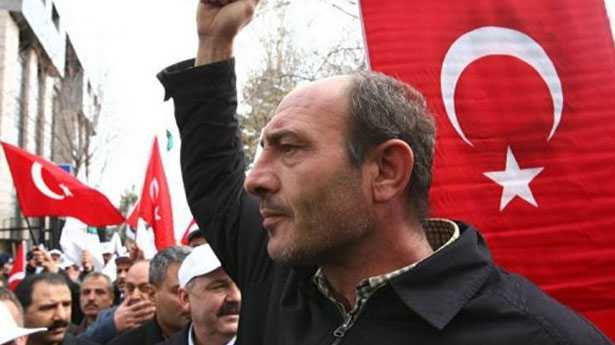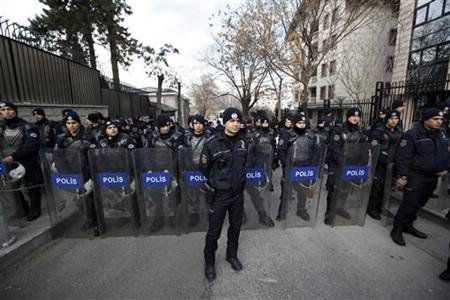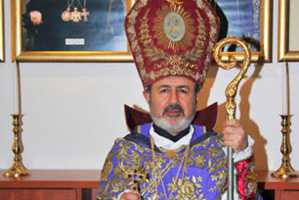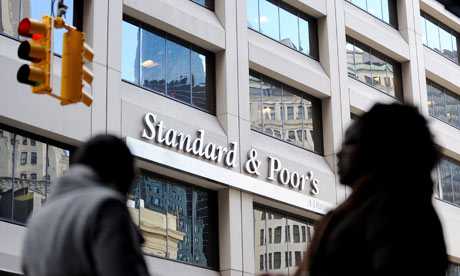By Agence France-Presse
Wednesday, December 21, 2011

ANKARA — Ankara will announce sanctions against Paris, Prime Minister Recep Tayyip Erdogan said Wednesday on the eve of a debate in the French parliament on a law criminalising the denial of the Armenian genocide by Turkish forces.
“Tomorrow probably I will announce what we will do at the first stage and we will announce what kind of sanctions we will have at the second and third stages,” Erdogan said late Wednesday, according to Anatolia news agency.
He said the move by French President Nicolas Sarkozy was aimed at electoral gains and would “harm Franco-Turkish relations.”
France’s estimated 400,000-strong ethnic Armenian population is seen as an important element in Sarkozy’s support base as he prepares for a tough re-election battle in April next year.
The French parliament is on Thursday expected to approve the bill, which would see anyone in France who publicly denies the 1915 genocide face a year in jail and a fine of 45,000 euros ($58,000).
Armenians say up to 1.5 million of their forebears were killed during World War I by the forces of Turkey’s former Ottoman Empire, a figure Ankara disputes.
The planned French legislation has united Turkey’s ruling and opposition parties which in a joint declaration denounced it as a “grave, unacceptable and historic mistake.”
“We strongly condemn the proposal which denigrates Turkish history,” the lawmakers said, urging France to consider its own past, including its involvement in bloodshed in Algeria and Rwanda.
Around 100 people demonstrated on Wednesday in front of the French embassy in the Turkish capital, chanting slogans.
The protestors unfurled banners reading, “Genocide master imperialist France,” “What were you doing in Algeria?” “What were you doing in Rwanda?” and “Liar Sarkozy.”
The group later dispersed without incident.
Turkey’s EU Affairs Minister Egemen Bagis said the legislation was against “EU principles, the spirit of the French revolution and reason.”
Turkish media are highly critical of the genocide bill initiated by a lawmaker from the ruling party of President Nicolas Sarkozy.
“Ugly Monsieur,” ran the headline in the opposition newspaper Sozcu, in reference to Sarkozy.
“Sarkozy has nothing to lose,” Semih Idiz wrote in his column in Milliyet daily.
“If winning the votes of French citizens of Armenian origin is eventually going to facilitate his re-election as president, he will end up a winner,” said Idiz.
Turkey and France have enjoyed close ties since Ottoman Empire times, coupled with strong economic links, but relations took a downturn after Sarkozy became president in 2007 and raised vocal objections to Turkey’s EU accession.
A delegation of Turkish lawmakers and businessmen lobbied in France this week in an attempt to head off the genocide bill.
But Turkey’s business sector is advising against a boycott of French products, saying such a move would also harm Turkish interests.
Ankara is considering diplomatic and trade sanctions against Paris, including recalling the Turkish ambassador in Paris for consultations and asking the French ambassador in Turkey to leave.
It is also planning trade sanctions targeting French interests in the country and excluding French companies from public contracts.
Turkey is an important economic partner for France with about 12 billion euros in trade between the two countries in 2010.
Some analysts have criticised the government for brushing aside for years its proposal to set up a commission to probe the 1915 events while Armenian nationalists lobbied hard for recognition of the genocide.
Turkey rejects the term genocide and says between 300,000 and 500,000 Armenians, and at least as many Turks, died in combat or from starvation when Armenians rose up and sided with invading Russian forces.
France recognised the killings as genocide in 2001.
Agence France-Presse
Agence France-Presse
AFP journalists cover wars, conflicts, politics, science, health, the environment, technology, fashion, entertainment, the offbeat, sports and a whole lot more in text, photographs, video, graphics and online.
via Turkey to launch sanctions against France over genocide bill | The Raw Story.




